Succession Psychology: Now that HBO’s corporate drama Succession has ended, nobody can stop talking about the infamous Roy family. Created by Jesse Armstrong, the family empire is made up of CEO father and business tycoon Logan Roy (Brian Cox); prime to lead son Kendall Roy (Jeremy Strong); his immature brother Roman Roy (Kieran Culkin); and their little sister, Siobhan Roy (Sarah Snook). There’s also the neglected eldest brother (from Logan’s first marriage), Connor Roy (Alan Ruck), and Siobhan’s husband, Tom Wambsgans (Matthew Macfadyen).
The empire in question is a billion-dollar media conglomerate called Waystar RoyCo, which dominates the industry as a parody of corporate America. Although HBO classifies Succession as a drama, it could equally be measured as a dark comedy satire, exposing the corrupt world of the wealthy elite just as Bret Easton Ellis’s satire of yuppy culture in American Psycho. Throughout the four seasons, we follow the Machiavellian sibling trio playing the corporate Game of Thrones to see who will take their father’s office as the next CEO.
Succession is frequently compared to Shakespeare’s play, as it deals with themes of family, betrayal, revenge, and power and features flawed, scheming characters meeting their tragic end. Even their dialogue is hard to understand—not because of ye olde English and iambic pentameter, but because they speak in crude riddles and euphemisms. A constant battle of wits. Their vague language is a subconscious way of disconnecting from their responsibilities—when a rocket blows up, or people die, it’s “climate” or “temperature” they have to talk about instead of real people. As the suits put it, “No Real Person’s Involved.”
The Waystar customers, and even workers, are not considered people but capital used to pile on the company’s weaning domination. Succession opens with Logan having a stroke, signaling his—and Waystar’s—age. This provides an opportunity for Elon Musk’s caricature Lukas Mattson (Alexander Skarsgård), to take over using Twitter and casual dress wear.
However, nothing in Succession is actually about money. They’re all billionaires, regardless. Succession is really about the Roy family dynamics, the psychology of each traumatized character (none of whom are good, heroic, or likable—yet somehow, we stay invested), and how they compete not for Logan’s chair but his approval. Perhaps even his love. When Logan finally dies in season four, the finale doesn’t just mourn the loss of Logan but also democracy as a whole and the siblings’ chance to be crowned favorite child.
Logan Roy — The Narcissist Father
Logan Roy is the head of the family, so everything emanates from him. Almost every aspect of his children’s psychology can be traced back to their childhood—particularly their father—which fans have been analyzing since its premiere in 2018. Like most dysfunctional families, their trauma is generational, reaching back to Logan’s poverty-stricken upbringing in Scotland/Canada.
Occasionally, Logan hints that his uncle/father figure was abusive, which would explain the lashing scars we glimpse on his back in the swimming pool. Being raised like this is the only way Logan knows—it’s the standard norm to him, and he even cites it as a reason for his ruthless motivation. Perhaps Logan thinks he’s driving his children to greatness through abuse, although he inflicts it emotionally rather than physically (mostly).
If there’s one word to describe Logan, it’s narcissistic. As a filthy rich old white man who owns half of America, he is essentially a symbol of capitalism, looking down on the world from his New York City high rise. Succession often positions its characters against the windows of their top-floor office, looking over the city as an emblem of their greedy domination.
Consequently, Logan thinks he owns everyone, cursing anything that says otherwise and even thinking he can tell the FBI to leave. Essentially, Logan desires immortality, which is why he keeps a tight grip on his position and elects himself successor despite his poor health. When he begins feeling breathless and faint during a walk-and-talk meeting, he collapses on the floor rather than admit he’s in pain—a true (and damaging) stiff upper lip.
Logan is a borderline sociopath for the lack of empathy he shows. The only emotion Succession ever teases out of him is always fake—a show to trick somebody onto his side. He’s the master of manipulation, such as comforting a crying Kendall, saying, “You’re my boy.
You’re my number one boy,” to prevent him from going through with his takeover bid. This “nice” side to Logan is only ever present for public speeches and 1-1 conversations—private meetings where he can coax people onto his team without any witnesses to his lies. He raises his children in constant competition with each other and the world, all while remaining a watchful distance from them. His backyard wanderings in the vintage intro credits speak volumes about his emotional distance and omnipresence as he paces and calculates his next move.
Connor Roy — The Forgotten Son
Everybody seems to forget about Connor—his family, the audience, and even the writers. He’s the family’s black sheep for several reasons: he was born from a different marriage, he’s a fair bit older than his siblings, and he has nothing to do with the Waystar empire. It almost feels like Connor is a spare part—a character Succession could do without.
However, his presence is a driving force behind some of Roman’s hyperbolic behavior (who does everything not to be dismissed like his brother) and shows just how business-minded the Roys are. Due to the fact Connor opted out of the family enterprise, he’s now just a mandatory name on the wedding guest list.
Connor has the potential to be a nice man. He’s gentle-natured, interested in culture and art, and puts thought into birthday presents (it might have missed the target, but his sourdough starter for Logan came from the heart as a nod to his Scottish birthplace). He wants nothing to do with the corruption of Waystar and feels the most comfortable in the working-class bar away from his siblings, who practically gag at the sight of a pint.
However, Connor is still a product of aristocratic wealth and capitalism which, coupled with being the family outcast, makes him the most out of touch with reality. Of course, Logan would hate a sourdough starter lump of “goo,” and filming himself drinking beer doesn’t make him the everyman he thinks he is in his million-dollar apartment.
Connor blows off the handle because the butter is “too cold” at the foundation gala; he practically buys his beautiful young wife without realizing it; and, craziest of all, he runs for President with absolutely no experience. Although he lacks the awareness or wants to manipulate his peers like the rest of the Roys, he’s still a delusional billionaire who can never comprehend what the real world is like.
Connor desires to be seen, so he makes a lot of noise to gain the attention he didn’t get during childhood, with Kendall always being assumed the eldest son and first in line. We can’t blame Connor too much, though. As he puts it himself, Connor is “a plant that grows on rocks and lives off insects,” while his siblings are nothing but “needy love sponges.”
Kendall Roy — The Tragic Hero
Shakespeare’s tragic heroes, such as Macbeth and Hamlet, follow the formula laid out by Aristotle in his Greek theory of Poetics. They are anti-heroic protagonists who pursue power but are brought down by a change of fortune and a fatal flaw, evoking pity, fear, and catharsis in the audience. Kendall is arguably Succession’s main protagonist, as he’s assumed to be the next successor and causes the most drama trying to take down his father (if you take a shot at the king, make sure you kill him—as Kendall learns the hard way). His fatal flaw is drug addiction and an inflated ego, and despite almost committing suicide on a lilo in season three, Kendall’s tragic end is losing Waystar moments after feeling the coolness of the gold trophy in his grip.
Logan, his siblings, and the competition in general often mock and use Kendall’s Achilles heel of addiction against him. This self-destructive behavior—“his favorite”—goes hand-in-hand with other symptoms of bipolar disorder that Kendall displays but is never diagnosed with. Throughout Succession, Kendall swings from buzz-wording and money-throwing his way through deals, rapping on stage, listening to hip-hop on full blast and trying to buy out his father, to smoking meth in a dingy apartment, locking himself in his room, crying on the floor and saying “yes dad” to every order. His egotistical birthday party is a microcosm of his pendulum personality, where he invites the whole city to dance among walls adorned with photos, videos, holograms, and memorabilia of himself, then ends the night sobbing over bunny wrapping paper.
Kendall desires to be liked, which he strives for using cool lingo, expensive sneakers, grand speeches promising the impossible, and a “chilled” image that he tries way too hard for, ironically making him the least chilled character. He’s a showman with no natural stage presence, hiding in the back room instead of going on live TV for a grilling interview. Yet, Succession creates empathy for Kendall through his vulnerability. He cries, suffers, and self-destructs the most, with a perpetually sad face that craves validation but lacks the self-awareness and “killer instinct” to get it.
He’s also the only one who seems to feel guilt, posting money through the letterbox of a victim’s family and weeping over an innocent death he caused. Because Logan had been grooming Kendall for the throne since he was seven, it’s natural Kendall should feel the most wronged by the four-season-long dance of broken promises that leave him empty-handed. As he admits in the show finale, he’s nothing without it—just a paranoid addict and estranged father to his kids, who are bound to the same traumatized fate as all the Roys.
Roman Roy — The Momma’s Boy
Whereas Kendall is the daddy’s boy, Roman is undoubtedly the one with the biggest mommy issues—issues that verge on the Oedipus complex. Siobhan, in particular, makes lowbrow digs at his obscure sexuality, which is never fully explained. The internet has taken to decipher Roman’s sexual psyche and concludes that he has a fetish for older women thanks to his absent mother and needs humiliation to get off. This is likely due to his deep insecurities that he takes ownership of rather than be mocked for.
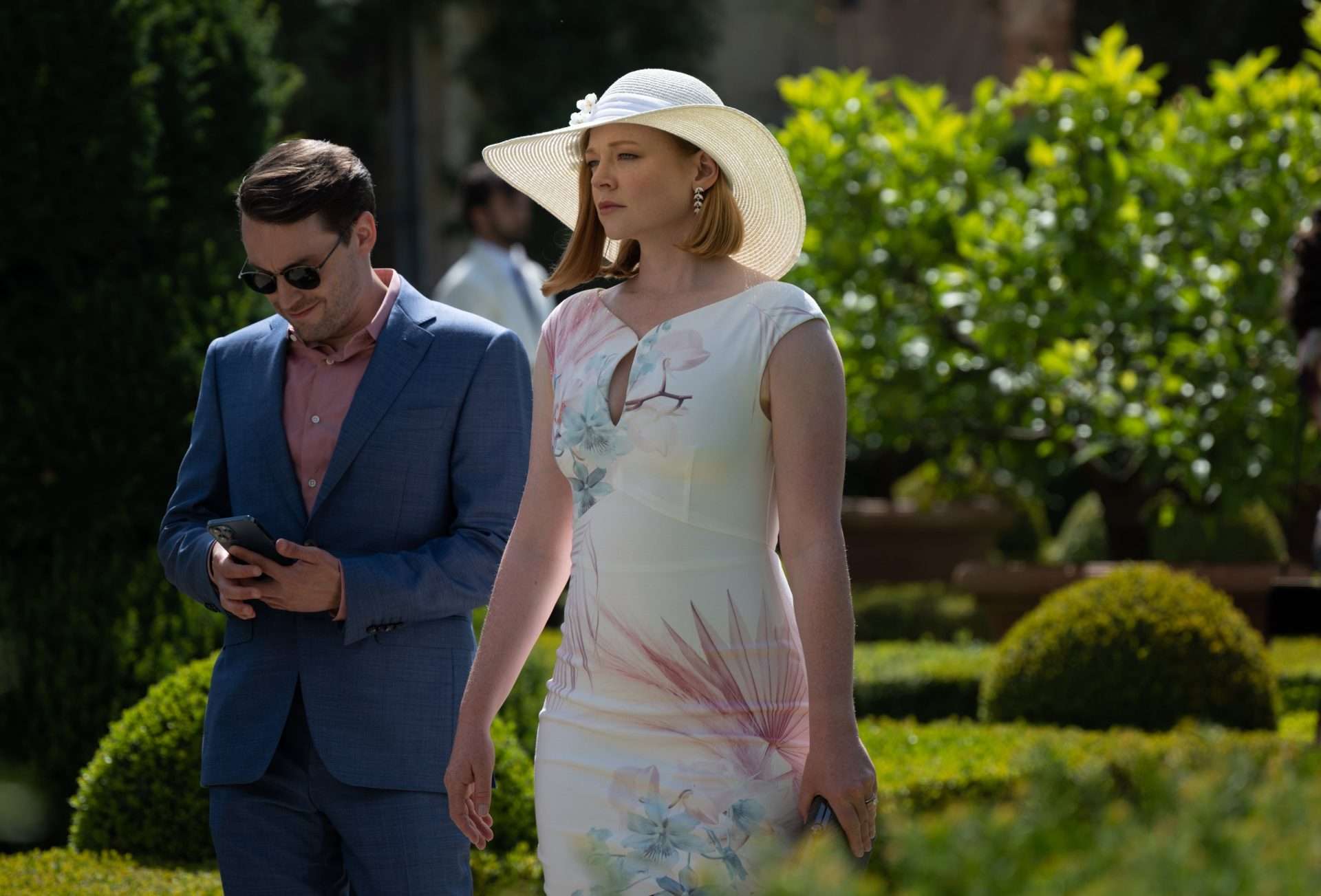
Roman isn’t a macho man or an intellect; he’s not skilled, talented, or personable. You’d think he was the youngest sibling from his immaturity, acting like an “overexcited little boy” with ADHD, unable to sit still while the grown-ups talk. As the family/business is made up of foul-mouthed talkaholics punching cruel zingers at each other, Roman makes himself impossible to embarrass by doing it to himself. He finds satisfaction in saying whatever will make the room most uncomfortable. Moreover, he receives sexual gratification from being degraded, such as when Gerri (J. Smith-Cameron)—an older and forbidden interim CEO—pleasures him with insults.
Being the court jester makes Roman one of the most entertaining characters to watch on our end, but also one of the most interesting from his complex, sadistic pathology. He has the darkest humor on the pitch-black show, making rape jokes during therapy and asking if his sister’s baby is his. By burying all his emotions, Roman’s fragile and shattered inner child—possibly stemming from child sexual abuse (notice how all his inappropriate pedophilia jokes are about himself?)—is bound to boil over at some point, as it does in the final season.
None of the Roy family end victorious, including Roman. When we see his expensive suit swapped out for shorts and a t-shirt, hiding out in his mother’s house in Barbados, it calls to mind the image of Kendall in rehab. After confidently practicing his eulogy for Logan’s funeral, Roman breaks down sobbing in a parade of emotions no one expected from a masochistic jokester. Roman desires freedom more than anything, even if he won’t admit it. Hence, when the final shots show Roman sipping a martini alone at a bar, rid of Waystar, a small smile tugs at his lips.
Siobhan Roy — The Smart One
Siobhan is swimming against a stronger current than her brothers because she’s a woman in a man’s world, the youngest of the siblings, and comes from outside the Waystar enterprise. In season one, Siobhan is introduced as a political consultant—a job she flirts with on and off throughout Succession. This on-and-off approach is typical of Siobhan as an infidèle who never puts all her eggs in one basket. It’s likely her inability to trust others that makes her untrustworthy—to her, every word, glance, whisper, deal, nod, promise, and statistic is suspicious. And nine times out of ten, she’s right.
Capitalism, media, and industry are built on schemes and mind games, and as such, the entirety of Succession plays out like a giant game of metaphorical chess. Siobhan is undoubtedly the best player—cunning, self-aware, and boasting strong social skills—however, the game is rigged against her.
Siobhan knows this and tries to play the field, alternating between boorish insults and feminine flirting. She thinks before she speaks and is vague in her promises—including to her husband, who doesn’t find out it’s an open relationship until their wedding night. It’s difficult to tell whether Siobhan loves Tom, as she sees everybody as a transaction, including her “meat puppet” spouse.
Siobhan is the least emotional Roy sibling, whether it’s because she’s a woman or despite being a woman. The only times she tears up are when her father dies (or almost does), or Tom is involved, which is mainly due to the fact she’s pregnant. Although she cries more frequently than Roman, it’s not because she’s purposefully trying to hide her insecurities like he is.
Siobhan is a highly competitive adulterer harboring a strained relationship with her mother—being the only daughter to a cold mother who openly admits she should have never had kids. What Siobhan desires is control and respect, but he ends up reduced to the CEO’s pregnant wife, who’s not even of Roy’s blood or particularly smart. If she were born the eldest son, she would have likely been crowned successor from the start.
Tom Wambsgans — The Dark Horse
Although it looks like Tom won the game against all odds, it’s just a façade with Lukas pulling the strings. Despite it being touched upon a few times throughout Succession that Tom might take the chair, it was always brushed off as an impossible pipe dream. At one point, Tom was even the sacrificial lamb for the entire cruise ship fiasco, buckled in for jail. Tom openly expresses his fear of going to jail and confesses how much he loves being rich and drinking expensive wine, and for this, he’s the most in tune with his emotions.
Most of Tom’s confessions of love/fear are met with an invisible brick wall from Siobhan, so eventually, Tom turns hard against the woman he once truly loved. Tom desires to stay rich, so marrying Logan’s daughter is partly a power move, but he’d still make the best father out of the family (not good, but the best of a bad bunch), probably because he’s not a real Roy. His superficial win is only possible because of his snitching sidekick Gregg (Nicholas Braun). This perpetually bewildered, bumbling idiot serves as the bridge between our world and the world of corporate wealth.
Tom is a bit of an oddball, and it’s never quite clear if he’s joking or not. His offkey sarcasm is aided by the fake American accent from a British actor, and his friendship with Gregg wavers between bossing him about, beating him up, and taking him out to dinner. Even though Tom is rich, he’s still daunted by the Roy family and eager to impress Logan to secure his spot (and his money), as we see when trying to give Logan a birthday watch for the entirety of the pilot. An awkward affair that summarizes Tom’s character for the rest of the show. From this exchange alone, nobody could have seen Tom coming.




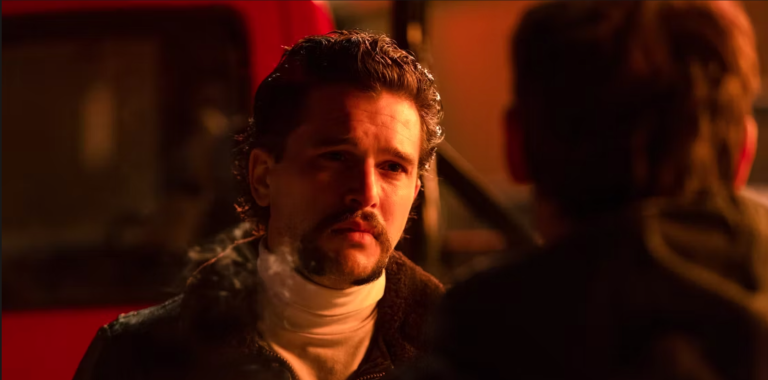
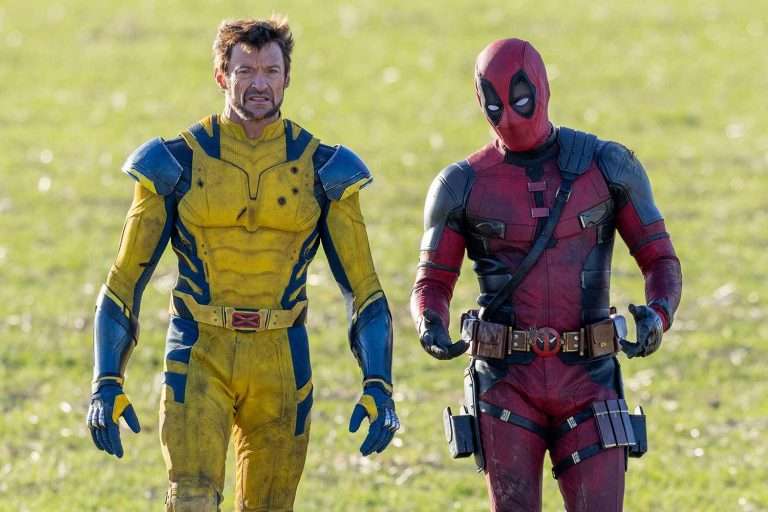
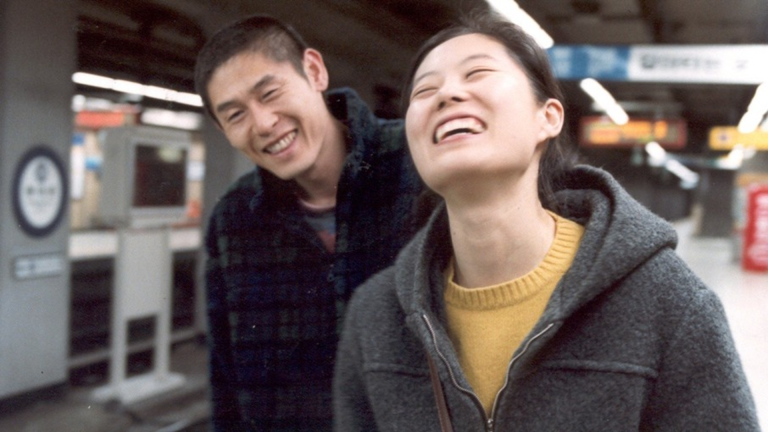
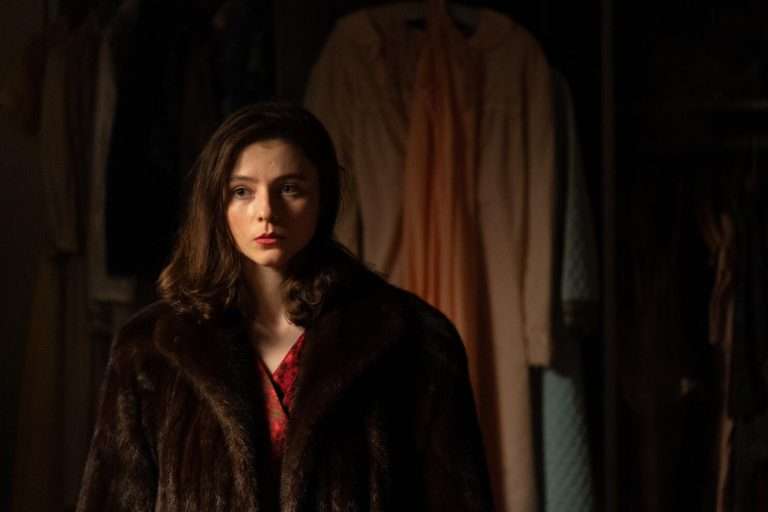
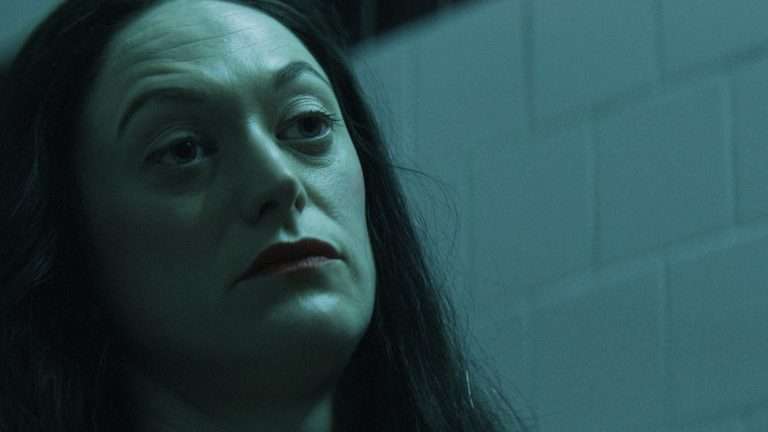
![Happiness [2017]: NYAFF Review](https://79468c92.delivery.rocketcdn.me/wp-content/uploads/2017/07/happiness2-1600x900-c-default-768x432.jpg)